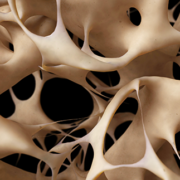Celiacs Enjoy Better Outcomes Despite Five-Fold Increase in Heart Attacks
 Cardiovascular Outcomes in Patients with Celiac Disease: An Insight from The National Inpatient Sample
Cardiovascular Outcomes in Patients with Celiac Disease: An Insight from The National Inpatient Sample
- DocWire Conference Coverage 1
Gupta M. Cardiovascular Outcomes in Patients with Celiac Disease: An Insight from The National Inpatient Sample. Presented at the ACC.20 World Congress of Cardiology; March 28-30, Chicago, IL.
The number of acute myocardial infarction (AMI) related admissions in celiac disease (CD) patients significantly increased from 2005-2014, according to research presented at the ACC.20 World Congress of Cardiology.
Researchers reviewed the Nationwide Inpatient Sample from 2005-2014 for adults with AMI as a primary diagnosis and CD as a secondary diagnosis. They identified 6,180,485 AMI hospitalizations, of which 3,169 had a CD diagnosis. Subsequently, the researchers used survey regression to calculate adjusted odds ratios (aOR) for hospital mortality (the primary endpoint) and other outcomes.
According to the results, in 2014
- The proportion of patients with CD in AMI hospitalizations grew from 0.015% in 2005 to 0.076%.
- The results showed that CD+AMI patients were significantly older (70.3 vs. 67.4 years), and more likely female (51.9% vs. 39.5%).
- After adjusting for age, gender, race, Charlson Comorbidity index and hospital level characteristics, the researchers observed that CD+AMI hospitalizations had a lower odds-ratio for hospital mortality (aOR=0.39; 95% CI= 0.23 to 0.67).
- Also, the results showed that length of stay in the CD+AMI patients was shorter (4.53 vs. 4.84 days, P<0.01) but the average hospitalization charges were higher ($64,058 vs $60,223), juxtaposed to non-CD AMI patients.
“We found that the number of acute myocardial infarction related admissions in the CD patients has risen more than five-fold from 2005-2014,” the authors concluded.
“However, the odd of in-hospital mortality in these patients is lower than the patients without CD for unclear reasons or mechanisms. The results of our study show that though the CD-related systemic inflammation is associated with an increasing number of AMI hospitalizations, these patients have comparatively favorable outcomes than controls; though it definitely adds an extra cost to the hospitalization.”













